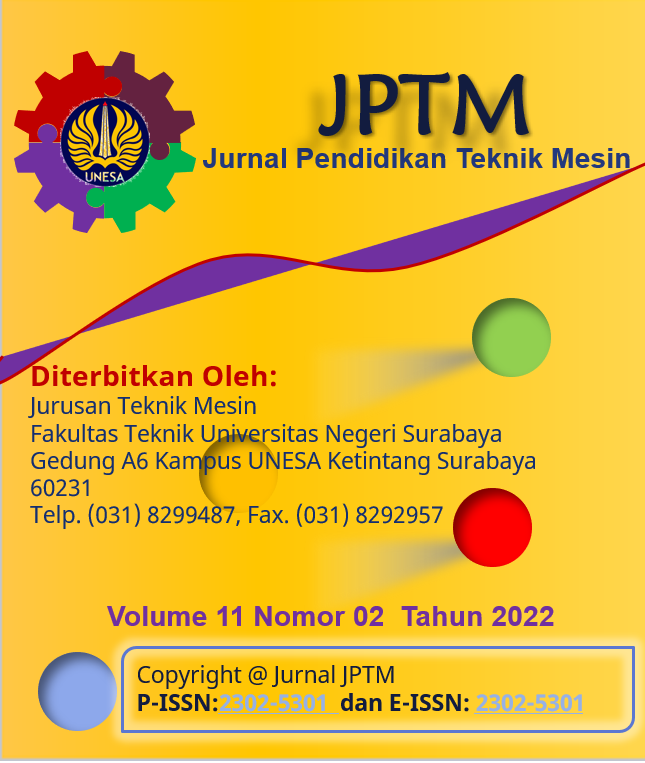PENGEMBANGAN MODUL VIBRATION TESTER SEBAGAI PENUNJANG MATA KULIAH PENGETAHUAN ALAT UKUR MAHASISWA UNIVERSITAS NEGERI SURABAYA
Keywords:
modul, vibration tester, alat ukur, respon dosen, respon mahasiswaAbstract
Abstract
This research is motivated by the lack of supporting media for lectures in the form of modules for knowledge of measuring instruments, especially vibration tester materials. This of course makes the learning process less effective and efficient. Therefore, through this research, a module learning media was developed with a special topic that discusses the material for measuring vibration testers. This research is a development type where students who program the measuring instrument knowledge course in the odd semester of 2021/2022 are the research subjects. The development model used refers to the concept of developing Thiagarajan learning media, namely the 4D Model. The instruments used include response questionnaires for both lecturers and students. Data analysis used quantitative descriptive method. The results showed that the module users, both lecturers and students, gave a positive response. In more detail, the lecturers responded with an average percentage value of 93.91%, where the percentage was included in the very good category. Meanwhile, students responded to the developed module from the aspect of appearance, presentation of material, to benefits with an average percentage value of 90.24%, where the percentage was included in the very good category.
Keywords: module, vibration tester, measuring instrument, lecturer response, student response.
Downloads
Downloads
Published
Issue
Section
 Abstract views: 135
,
Abstract views: 135
, PDF Downloads: 92
PDF Downloads: 92





